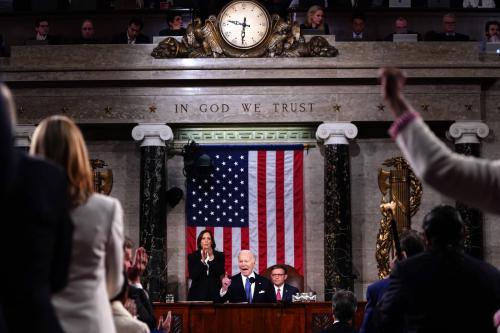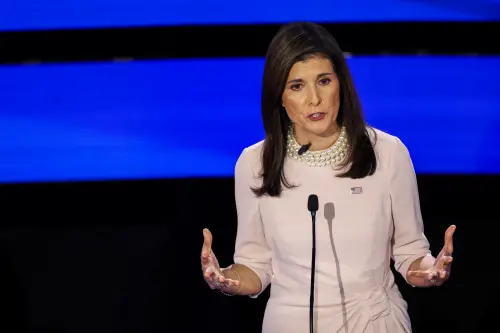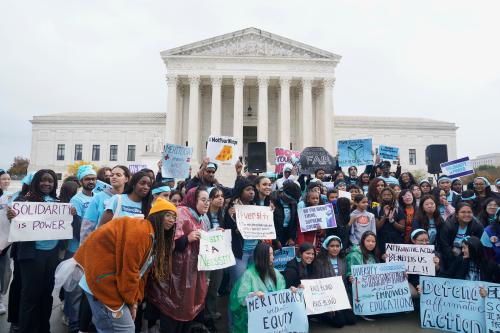Are the basic premises of our current policy in Afghanistan fatally flawed?
The fact that I feel compelled to pose this question so soon after the completion of President Obama’s painstaking review reflects the mounting evidence that the results of that policy have fallen far short of expectations.
Let’s begin at the beginning, with Marja. The holy trinity of modern counterinsurgency is clear, hold, and build. Coalition forces are stalled at step one. After the initial military thrust, many Taliban fighters, including mid-level commanders, swooped back in to the area to intimidate local inhabitants who might otherwise be inclined to cooperate with the coalition and Afghan government. Many other Afghanis sympathize with the core Taliban message that we intend to occupy their country for the long-term with the aim of imposing alien cultural, religious, and political values. It is hard to see what will tip this stalemate in our favor, even harder to see how we can hand over governance and security function to the Afghans in Marja any time soon. Brigadier General Frederick Hodges, one of the leading commanders in southern Afghanistan, puts it this way: “You’ve got to have the governance part ready to go. We talked about doing that in Marja but didn’t realize how hard it was to do. Ultimately, it’s up to the Afghans to step forward.” It’s clear that Hodges is not holding his breath.
The next shoe to drop was Kandahar. Ever since this Taliban stronghold was identified as a key target, the tension between the U.S. and Afghan governments on this issue has been palpable—so much so that the coalition is now hesitant to call what it has in mind an “offensive.” Just last week, we learned that the operation scheduled to begin in the spring would fall even farther behind schedule. As The New York Times reports, “The Afghan government has not produced the civilian leadership and trained security forces it was to contribute to the effort, U.S. officials said, and the support from Kandaharis that the United States was counting on Karzai to deliver has not materialized.” Stanley McChrystal, the top commander in Afghanistan, has been admirably frank about a core difficulty: the residents of Kandahar are far from sure that they want the protection we claim to be offering them.
On to Kabul, where President Karzai has reportedly lost faith in the coalition’s ability (and that of his own government) to defeat the Taliban and is secretly maneuvering to strike a separate deal with them. If these reports are correct—and Susan Rice, our UN ambassador, disputed them on Sunday (though, notably, she offered no new evidence in support of her assertion that Karzai remains a committed partner)—two events appear to be fueling his growing disenchantment: senior American officials’ claims that his reelection lacked legitimacy, and President Obama’s December announcement that he intended to begin reducing the number of American troops by July 2011.
One might be tempted to chalk up the extent of our difficulties in Afghanistan to tendentious reporting. I was skeptical myself—that is, until I stumbled across a stunning NATO/ISAF report completed in March. This report summarizes the results of an in-depth survey conducted in nine of the 16 districts in Kandahar Province to which researchers could safely gain access. Here are some of the findings:
- Security is viewed everywhere as a major problem. When asked to name the top dangers experienced while traveling on the roads, far more respondents named Afghan National Army and Police checkpoints than roadside bombs, Taliban checkpoints, or criminals. And the Taliban were rated better than ISAF convoys and checkpoints as well.
- Corruption is viewed as a widespread problem and is experienced by respondents on a regular basis. In fact, 84 percent say that corruption is the main reason for the current conflict. Corruption erodes confidence in the Afghan government, and fully two-thirds of respondents believe that this corruption forces them to seek alternatives to government services and authority. Chillingly, 53 percent regard the Taliban as “incorruptible.”
- The residents of Kandahar overwhelmingly prefer a process of reconciliation to the prospect of continued conflict. Ninety-four percent say that it is better to negotiate with the Taliban than to fight with them, and they see grounds for believing that these negotiations will succeed. Eighty-five percent regard the Taliban as “our Afghan brothers” (a phrase President Karzai repeated word for word in his address to the recent jirga), and 81 percent say that the Taliban would lay down their arms if given jobs.
Our military commanders in Afghanistan talk incessantly about the need to “shape” the political context in a given area before beginning activities with a significant military component—but if their own research is correct, our chances of “shaping” Kandahar any time soon range from slim to none. Based on General McChrystal’s own logic, then, we cannot proceed there because a key requirement for success is not fulfilled. And if we can’t prevail in Kandahar, then we’re stuck with the Taliban as a long-term military presence and political force in Afghanistan.
And finally, on to Pakistan. Despite skeptical reports from our own intelligence services, U.S. government officials have taken recently to praising the authorities in Islamabad for their stepped-up cooperation in the fight against the Taliban. But a report from the London School of Economics made public over the past weekend questions the basis for this optimism. Based on interviews with nine current Taliban field commanders and ten former senior Taliban officials as well as dozens of Afghan leaders, the report argues that relations between the Taliban and the Pakistani intelligence (the ISI) are dense and ongoing. One senior southern Taliban leader said: “Every group commander knows the reality—which is obvious to all of us—that the ISI is behind the Taliban, they formed and are supporting the Taliban. … Everyone sees the sun in the sky but cannot say it is the sun.”
Worse, the report offers credible though not conclusive evidence that Pakistani President Zadari has been personally involved in the release of numerous Taliban prisoners from Pakistani jails, reportedly telling them that they had been arrested only because of American pressure. Surveying the evidence, Matt Waldman, the report’s author, concludes that “Pakistan appears to be playing a double-game of astonishing magnitude” and that “without a change in Pakistani behaviour it will be difficult if not impossible for international forces and the Afghan government to make progress against the insurgency.”
It’s time for the Obama administration to ask itself some hard questions. Here are three:
- Is the LSE report an accurate and balanced representation of Pakistan’s relations with the Taliban? If so, isn’t Waldman’s pessimistic policy judgment unavoidable?
- If it is the case that the July 2011 date for beginning our withdrawal is undermining the Afghan government’s confidence in our policy, should we take that date off the table and replace it with standard “conditions on the ground” language?
- If we are not willing to do that (as I suspect we aren’t, given President Obama’s rejection of any open-ended commitment to offensive military operations in Afghanistan), should we relax our stated reservations to the policy of negotiation that President Karzai and the majority of Afghans clearly want to pursue?
I understand why we’re in Afghanistan. If there’s any reasonable alternative, no U.S. government can or should accept that country’s reversion to a staging-camp for terrorist strikes against us. The question is whether such an alternative exists—that is, whether our current strategy has a reasonable chance of yielding the outcomes we want. In the next few months, we’ll find out whether the “pragmatism” and “realism” on which the Obama administration prides itself will shape our strategy in Afghanistan—or whether this administration, like so many before, will confuse hopes with facts and orient policy around sunk costs rather than future prospects.



Commentary
Op-edA Question of Life and Death: U.S. Policy in Afghanistan
June 15, 2010